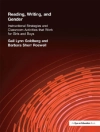Chinese citizens make themselves at home despite economic transformation, political rupture, and domestic dislocation in the contemporary countryside. By mobilizing labor and kinship to make claims over homes, people, and things, rural residents withstand devaluation and confront dispossession. As a particular configuration of red capitalism and socialist sovereignty takes root, this process challenges the relationship between the politics of place and the location of class in China and beyond.
Inhaltsverzeichnis
List of Figures
Acknowledgements
Notes on Transliteration
Introduction: The Countryside as Home
PART I: HISTORY, POLITICS, PLACE
Chapter 1. The Big Village
Chapter 2. Genealogies Revealed and Concealed
PART II: GENDER, GENERATION, KINSHIP
Chapter 3. Reproducing Kin across Generational Divides
Chapter 4. Gendered Aspirations in Marriage
PART III: LABOR, LOCATION, PRECARITY
Chapter 5. Fields, Food, and the Market
Chapter 6. Dangerous Domesticities
Conclusion: Claims, Belonging, and the Home
Postscript: Home as Workplace
References
Index
Über den Autor
Charlotte Bruckermann currently works in the Department of Social Anthropology at the University of Bergen. Her publications include a book co-written with Stephan Feuchtwang The Anthropology of China: China as Ethnographic and Theoretical Critique (2016, Imperial College Press), and various articles and chapters on environment, kinship, housing, care, morality, and ritual.












